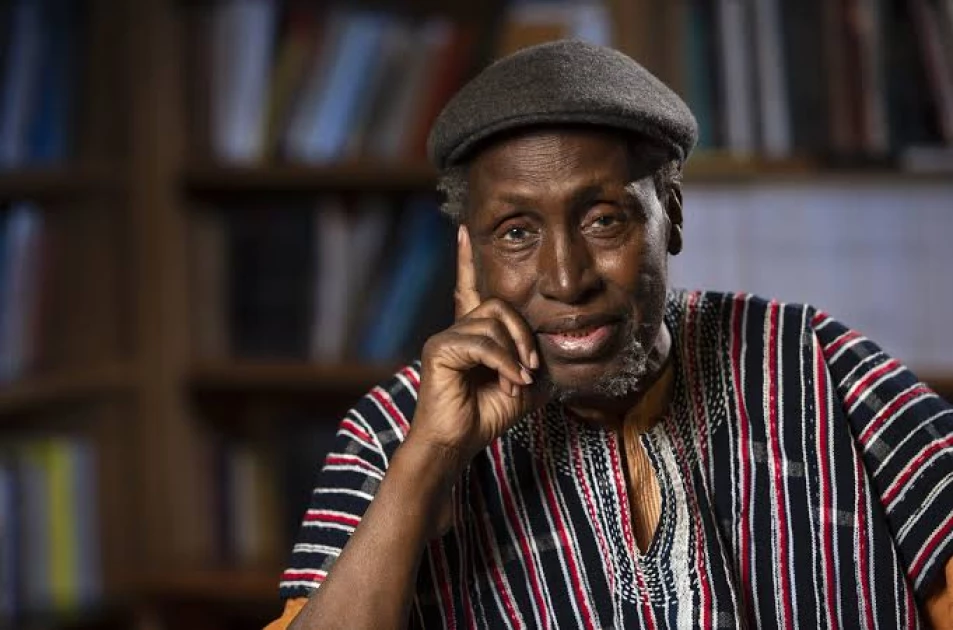President William Ruto and Deputy President Kithure Kindiki have paid glowing tributes to the late Prof. Ngũgĩ wa Thiong’o, the celebrated Kenyan writer, scholar, and revolutionary who died on Tuesday, May 28, 2025, in Buford, Georgia, USA at the age of 87.
Ngũgĩ, whose literary legacy spans over six decades, was lauded by the President as a courageous intellectual and a pillar of African thought who shaped the nation’s moral and political consciousness.
“He made an indelible impact on how we think about our independence, social justice as well as the uses and abuses of political and economic power,” President Ruto posted on his official X account.
“Ngũgĩ contributed in ways that could not be ignored—whether by allies or opponents. We all, at some point, held our breath in hope that he would win the Nobel Prize.”
The President described the late author as a fearless voice of reason whose work inspired generations of readers and freedom fighters, noting that Kenya’s cultural heritage is richer because of his contributions.
Kindiki: “A respected voice—even by dissenters”
Deputy President Kindiki also expressed deep sorrow at the passing of Ngũgĩ, calling him “a great son of Kenya” whose ideas transcended borders.
“Ngũgĩ wa Thiong’o was admired by many across the globe, and even those who disagreed with his views respected him,” said Kindiki.
“The world’s academia is left very much the poorer without him.”
The DP acknowledged Ngũgĩ’s role in challenging power and amplifying the voices of the oppressed through his writings in both English and Gikuyu.
Legacy of Resistance and Literary Brilliance
Ngũgĩ was best known for groundbreaking works such as Weep Not, Child (1964), A Grain of Wheat (1967), Petals of Blood (1977), and Devil on the Cross (1980), the latter written in Gikuyu while in detention. His play Ngaahika Ndeenda (I Will Marry When I Want), co-authored with Ngũgĩ wa Mirii, led to his arrest in 1977 by the Moi regime and a year-long detention without trial.
He later went into exile, continuing to produce essays, novels, and academic work that championed African languages, decolonization, and social justice.
National Mourning and Cultural Reflection
Plans are underway to organize a national memorial for Ngũgĩ wa Thiong’o. The Ministry of Sports, Culture and Heritage is expected to coordinate events in collaboration with local universities, writers’ associations, and diaspora communities to honor his legacy.
Ngũgĩ is survived by his children, many of whom have followed in his intellectual footsteps, and by readers across the world whose lives he transformed with his words.


